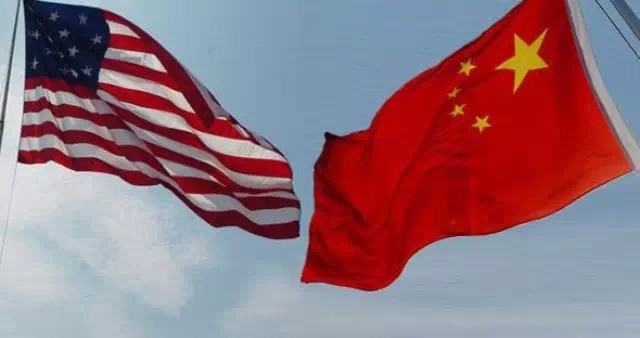
(People’s Daily Online) 08:25, April 20, 2015
With the United States as a notable exception, 57 countries have already joined the AsianInfrastructure Investment Bank (AIIB), with South Korea, the United Kingdom, Australia,France, Germany and Italy all signing up as founding members. It shows these countrieshope to share the results of economic development in China and Asia. In addition, itreflects the fact that China’s influence has risen to a new height and the Sino-US balance ofpower has undergone a significant shift. The world is entering a new era.
China’s GDP expected to surpass the US
More than thirty years ago, China ranked among the least advanced countries. Sincereform and opening up, China’s economy has entered a rapid development track. Over thepast 30-plus years, China has surpassed Italy, France, the United Kingdom, Germany andJapan to become the world’s second largest economy. At present, China’s GDP is twicethat of Japan and amounts to 64 percent of that of the US. China now is one of the twocountries in the world with a GDP of more than 10 trillion US dollars.
In 2014, China achieved 7.4 percent economic growth, the US 2.4 percent, the euro area0.8 percent and Japan 0.2 percent. At the current growth rate, it is only a matter of timeuntil China’s GDP surpasses that of the United States.
China to re-shape international financial order
Kissinger once said that if you dominate international finance, you dominate the world. Bythis measure, the United States has long dominated world finance, including theInternational Monetary Bank, the World Bank and the Asian Development Bank. No-onecould contest that the US dollar leads the world.
In recent years, the status of RMB or Chinese yuan has greatly improved.
The BRICS bank will soon be established and the AIIB is preparing for set-up, showingthat a new international financial order is on the way.
China’s friendships are expanding
In diplomatic ties, China has always adhered to the “Five Principles of Peaceful Co-existence”. In particular, the multi-polarization that China advocates has won increasingsupport. China has no military allies, but many friends.
In contrast, the United States places ideology at the forefront of its diplomatic relationsand feigns outrage against countries it dislikes. It strives to maintain a form ofinternational uni-polarity which is no longer acceptable to the rest of the world, and as aresult its allies are becoming increasingly restive.
Last November, Xi Jinping stated clearly in a conference on foreign affairs that Chinamust implement a “great-power diplomacy” to exercise greater political and moralinfluence. Since then, China has extended its national interests and addressed itself tointernational morality.
China’s military power steadily strengthens
After decades of development, China’s military has gradually increased. Sea, land and airforces have all strengthened. In particular the development of China’s aircraft carriermarks the country’s entry into a new phase.
A strong military is there to protect the national security of the citizenry. Amid ongoingSaudi-led airstrikes against the Shiite Houthi rebels in Yemen and a worseninghumanitarian situation on the ground, the Chinese government protected the security ofoverseas Chinese by successfully evacuating more than 600 Chinese nationals stranded inYemen. Later, at the request of the relevant countries, China ordered the naval escort fleetof Chinese People’s Liberation Army to conduct humanitarian relief in Yemen. The navy’srapid response won plaudits from domestic and international watchers alike.
Chinese culture is growing in popularity
Cultural influence is the deepest impact a country can exert on others. After five thousandyears, Chinese culture has unique qualities. In recent years, Chinese Confucian culture hasattracted attention, revealing the depths of China’s cultural heritage.
Joe Nye, former dean of Harvard’s John F. Kennedy School of Government, said thatChina’s traditional culture, and especially Confucian culture, has had a considerableimpact on the world. It has wide appeal. China’s traditional arts and crafts, for example,the Chinese people’s understanding of the relationship between man and nature, Chinesecalligraphy, painting, Chinese martial arts, and even Chinese food and traditionalcostumes are very popular in the United States.
China’s global influence will become more significant
“One Road, One Belt” is a new initiative proposed by China. It too is a focus ofinternational attention.
From the geographical point of view, the Silk Road economic belt and the maritime SilkRoad are expected to link nearly half of the population of the world. They will connect withthe Bangladesh-China-India-Myanmar Economic Corridor and the China-PakistanEconomic Corridor. These economic belts will greatly expand China’s economicdevelopment space and provide strategic support for the sustainable and stabledevelopment of China’s economy.
Over the past 30 years, China has accepted the world and followed the rules of the worldgame in the course of reform and opening up. Today, China needs not only to abide by theexisting international rules, but also to make its own voice heard in the internationalarena.
Last November, President Xi Jinping held a meeting with US President Barack Obama atZhongnanhai. Xi said that the two countries should understand and respect each other,and live in harmony by focusing on similarities and respecting differences. It is inevitablefor the two countries to have some divergences, but this is not the main current of theirbilateral relations. Both governments should serve as stabilizers and handle conflict in aconstructive fashion, so as to achieve cooperation and win-win results.
